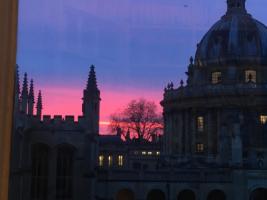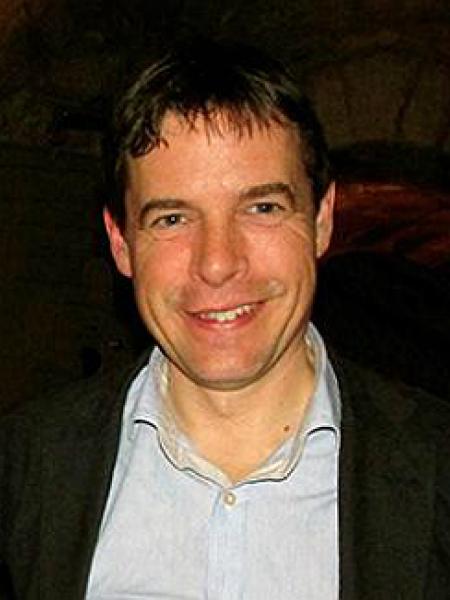
Oxford is a place of encounters, of present and past, of young and old, but also of people from near and far. This is true of our students, academics and support staff, but also of those who come for a brief visit, attracted by the University’s reputation, the beauty of the architecture and gardens, the quality of the museums or to share some of their own skills and knowledge with those of us who are lucky enough to live and work here. We have just enjoyed two remarkable lectures: this year’s Taylor Lecture, ‘The Hidden Dance of Writer and Reader: Creative Tensions in Fiction', as Agnes Fanning recounts, was delivered to a packed audience by prize-winning Argentinian author Samanta Schweblin whose works have been translated into some 40 languages. Our Zaharoff Lecturer, David Diop, is the first person of African descent and the first French-language writer to have won the International Booker Prize, with his translator Anna Moschovakis, for At Night All Blood is Black. He is also a professor of French studies at the Université de Pau et des Pays de l’Adour and a friend of Marshal Foch Professor Catriona Seth since their student days together at the Sorbonne. Dealing with what writing fiction is like for him, David Diop offered us a compelling insight into his creative practices. You can watch the lecture here and read about it in Lillian Fontaine’s account.
Oxford collections, particularly in the Taylor Institution, often lead to fascinating projects. Olga Smolyak was thrilled, during her doctoral studies, to come across a veritable treasure trove of documents relating to women’s political activism in Russia. She shared her discoveries during a recent exhibition which has particular resonance in the wake of recent events. Mary Boyle’s investigation of how 19th-century Germans dealt with some of the coarser aspects of Chaucer allows her to reflect on the different ways in which translation can handle difficult issues.
Oxford’s partnership with Berlin’s Universities, Libraries and Museums has led to many a collaboration. Doctoral student Hannah Scheithauer has been (re)discovering her homeland during a research stay there. Another German scholar from Oxford, Professor Henrike Laehnemann, recounts her recent experience on prime-time television evoking her very successful recent book giving voice to medieval nuns—it will soon be out in English in open access for all to read.
Research projects are often developed gradually. Zoe West-Taylor found an unexpected side to Spanish philosopher and novelist Miguel de Unamuno whilst preparing her MSt. She went on from there to conceive the plan of a thesis on Chilean writer María Luisa Bombal (1910-1980) whose work she intends to contextualise within modernism. We wish her all the best in this venture. And, speaking of modernism… we catch up with poet Stephen Romer to ask him about his collection of prose essays on French and English-language modernism which has just been published. There are many other exciting recent publications by Faculty members: Professors Nikolaj Lubecker and Jane Hiddleston are both shortlisted for the prestigious Gapper Prize awarded to the best publication of the year in French Studies by a UK-based academic and Professor Karen Leeder’s translation of Ulrike Almut Sandig’s Monsters Like Us has been longlisted for the Dublin Literature Award. We are also excited that doctoral student Jack Nunn has been awarded a prestigious Sachs scholarship to spend a year at Princeton—and has promised an article about his experience once he gets to America for a future issue of The Oxford Polyglot.
This is just some of our news from Oxford. We are always delighted to hear about your activities as alumni and your memories of your time here. Please keep in touch, let us know what you are up to, and come back to see us when you can!
With warm wishes,

Professor Jonathan Thacker
Chair of the Faculty of Medieval and Modern Languages